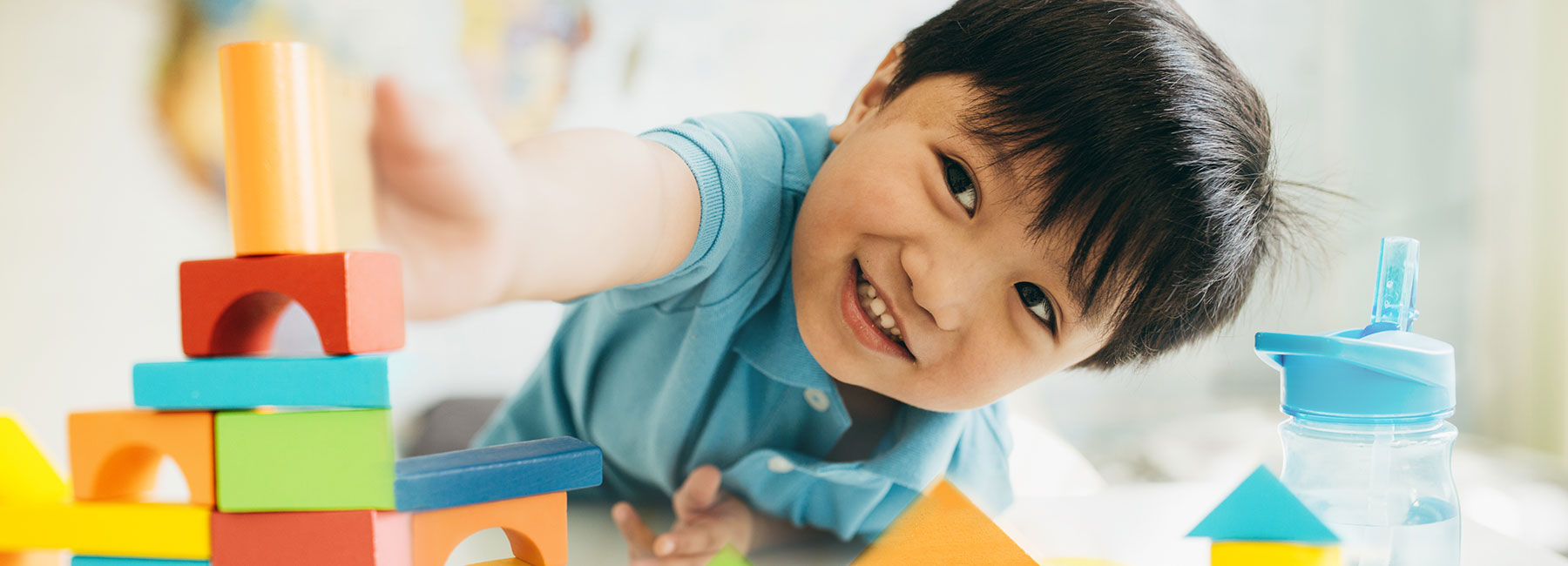
Reclaiming joy, play and healing for Indigenous families
Last year, Dnaagdawenmag Binnoojiiyag Child and Family Services noticed something powerful happening in their parenting program for Indigenous families.
One father, who grew up in care had experienced significant trauma, was hesitant to engage in the program at first — he even missed the first session. But when he joined the next session, he embraced the program, joined a cultural early years program, and became one of the first families to try Theraplay, a play-based approach that strengthens bonds between parents and children.
With support from his child’s Alternative Care parent*, he learned how to interact with his toddler in a playful, nurturing way and is now preparing for reunification, a milestone that once felt out of reach.
This transformation was made possible thanks in part to funding from The Knowledge Institute’s 2024 Innovation Initiatives, which allowed Dnaagdawenmag to adapt Circle of Security Parenting (COSP) to reflect the culture, values and the lived and living experiences of First Nations, Inuit and Métis families.
By blending Western therapeutic models with Indigenous teachings and practices, the program helps parents move from understanding their struggles to actively building stronger connections with their children.
Building on last year’s success, the organization is returning to the 2025 Innovation Initiatives to expand COSP with a new program called Foundational Theraplay. This program creates a culturally responsive path to healing, reintroducing play and joy as essential tools for overcoming intergenerational trauma and supporting the emotional needs of Indigenous families.
We spoke with Peggy McGee, Service Supervisor from Dnaagdawenmag Binnoojiiyag Child and Family Services, to learn more about the journey from last year’s project to this year’s innovation and why play and joy are essential tools for healing intergenerational trauma and supporting well-being.
Let’s start with last year’s project. How did your team adapt the Circle of Security Parenting program for Indigenous families?
In 2024, we worked with New Path Youth and Family Services to adapt COSP for the First Nations, Inuit and Métis families we walk alongside. We kept the program’s core intact but embedded Indigenous teachings and consulted closely with Elders and our organization’s cultural teams to make sure the program truly resonated with families.
Over 100 parents and caregivers registered, and 77 completed all eight sessions. That’s how we knew our families were connecting with the material.
What did you learn from that first project that shaped your direction for 2025?
The “Being With” module in COSP was a turning point. It’s where parents reflect on their own childhood experiences and how those shape their parenting today. For many, that was hard — especially those carrying the impacts of harmful government policies that disrupted Indigenous family bonds.
But reflection wasn’t enough. Parents told us, “Now that I understand why I struggle, I need help with what to do next.” That’s where the idea for Theraplay emerged.
How does Theraplay build on COSP?
COSP helps parents understand attachment and their child’s emotional needs. Theraplay gives them the tools to meet those needs in the moment through structure, engagement, nurture and challenge.
We integrate these principles during “supported Saghidig” (family time). Staff observe parent–child interactions, develop a plan together, and practice new ways to play, respond and connect. It’s about getting down on the floor, making eye contact and building those joyful, in-the-moment experiences that help children feel safe and valued.
What impact do you hope to see from combining these approaches?
Our ultimate goal is to reduce the number of children entering care and help those in care reunify with their parents sooner. When parents feel more confident and capable, and children experience consistent, joyful connection, relationships heal.
We’ve already seen family time shift from tense and awkward into something both parents and children look forward to. That shift lays the groundwork for long-term stability.
What advice would you give to other organizations who want to blend therapeutic models with cultural knowledge?
Start with community consultation — Elders, cultural leaders and local service providers. Build strong partnerships with both Indigenous and non-Indigenous organizations, like we did with New Path. And once your program is running, share your work in the community and at conferences. That visibility builds trust, opens doors and creates demand.
Why is culturally responsive mental health care so important?
Culture shapes who we are including our identity, our relationships, our way of healing. For Indigenous families, culture is the cornerstone of recovery from intergenerational trauma. If we don’t address the cultural dimension, we’re not supporting the whole person.
Our approach looks at emotional, spiritual, physical and mental well-being as interconnected. When families can balance all four, they can truly thrive.
Through the Innovation Initiatives program, Dnaagdawenmag Binnoojiiyag is showing how combining therapeutic tools with cultural knowledge can transform care — not just for individual families, but for the systems that serve them.
Note: Interview responses have been edited and condensed for clarity
* The term “alternative care parent” is increasingly used in child welfare contexts as a more inclusive and respectful term than “foster parent.”






